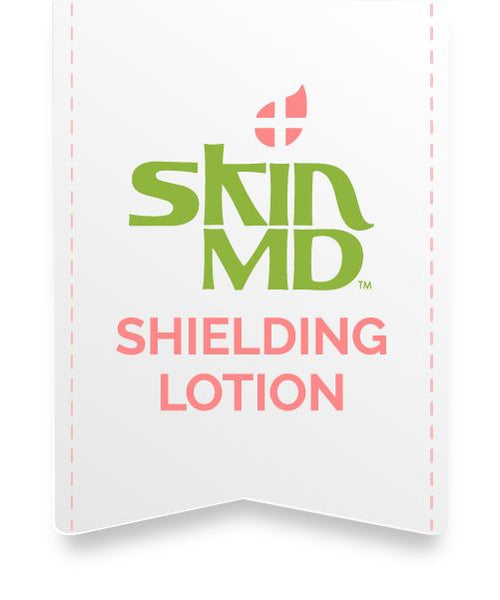Sensitive Skin
What is sensitive skin?
Sensitive skin is a term used widely to describe a specific skin type which is fair, almost transparent, fine-textured, delicate and quickly responds to any irritation. Sensitive skin is usually thinner with blood vessels located closer to the surface and has a less substantial skin barrier.
With a weaker skin barrier sensitive skin is more prone to dryness, allergic reactions, chemical, environmental, mechanical and atmospheric irritation (sunburns and windburns) as well as fluctuations in temperature (flushing from heat and cold). Sensitive skin is easily stimulated by stress, which may cause chronic dehydration and other skin problems.
Hydrate sensitive skin without any irritation
Most conventional lotions irritate and breakout sensitive skin with their harsh ingredients. Skin MD Shielding Lotion is free of fragrances and colorants making it hypoallergenic and perfect for even the most sensitive skin. Formulated using high quality, botanical ingredients Skin MD delivers hours of hydration to tired, dehydrated skin.
Improve your skin barrier with shielding lotion
Sensitive skin tends to have a weaker skin barrier causing skin to become easily irritated or dry. Strengthening the skin barrier can reduce redness and irritation experienced by those plagued with sensitive skin. Skin MD was created after years of scientific research into how the skin functions. Designed to work with skin, Skin MD becomes part of the outer layer of skin strengthening the natural barrier and increasing protection against irritants.
Sensitive skin care tips
- Read the list of ingredients before buying any cosmetic products to make sure they do not contain substances that may cause your skin to breakout.
- Test cosmetic products before applying them to large areas of the skin – never use any makeup or perfume without first trying a little of it on the inside of your elbow to see if you get any adverse reaction to it.
- Remember that even if a product is called “hypoallergenic” (which means ‘less likely to cause a reaction’) it doesn’t guarantee that you won’t have a reaction to some of its ingredients, for very few items of makeup agree with sensitive skin.
- If you try new products, try one at a time a week apart. That way if you have a problem you know which product is causing it.
- Make sure that cosmetics you use do not contain fragrances, colorants, formaline and formaldehyde-based preservatives (imidazolidinyl urea, diazolidinyl urea, quaternium-15, and DMDM hydantoin). These ingredients in cosmetics are a key trigger for many people, causing adverse skin reactions.

Comments (0)
Back to Skincare